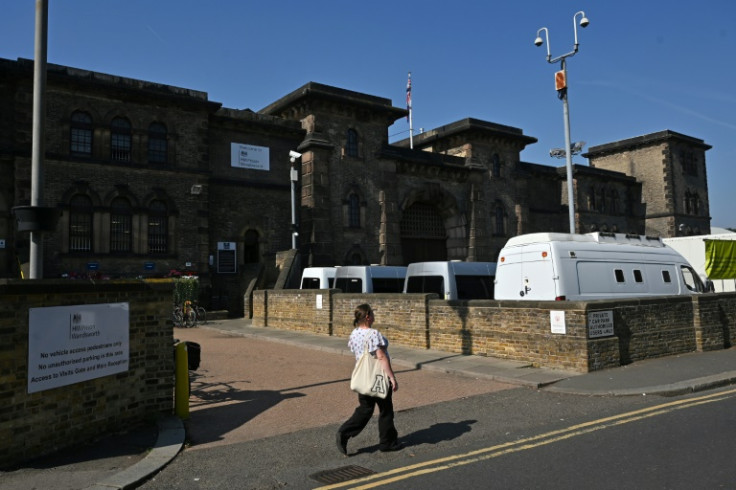
Keir Starmer has made a flurry of ministerial appointments since becoming UK prime minister last week but one name has stood out: new prisons minister James Timpson.
Timpson, chief executive of the key-cutting and shoe-repair chain of the same name, is not a member of parliament and has had to be nominated to the upper chamber House of Lords to serve in government.
But he has years of expertise in the sector -- much needed with warnings that UK prisons are nearing "breaking point".
His family-owned services company, founded in 1865, is well known for being one of the UK's largest employers of ex-offenders and runs training academies in dozens of prisons, with former convicts making up 10 percent of its workforce.
Timpson was also the chair of the Prison Reform Trust and has been vocal about restoring the rehabilitative role of prisons.
"We've become addicted to punishment," he told Channel 4 television in February. "We're locking people up far too long. And we're sending people to prison when actually all the evidence suggests prison is not the right place for them."
Part of the new Labour government's list of urgent issues it needs to deal with is prison overcrowding, with media reporting as few as 700 spaces remaining in men's prison facilities.
"Prisons are at absolutely breaking point when it comes to overcrowding, and ministers are going to have to take decisions very quickly," chief inspector of prisons Charlie Taylor told the BBC on Tuesday.
Growing backlogs in criminal courts -- worsened due to the Covid pandemic -- lengthier average sentences for offenders, and increasing numbers of recalled inmates are all adding pressure to the overwhelmed system.
England and Wales have the highest per capita prison population in Western Europe. Numbers hit a record high of just over 88,300 in February, with many prisons over capacity, official figures showed.
Some prison reform groups are hopeful that Timpson's experience and approach prioritising reintegration could turn things around.
"Having seen the system up close, James understands that prisons currently are unable to rehabilitate or hold safely and decently the huge numbers of people within them," said Andrea Coomber, who heads the Howard League for Prison Reform.
"We look forward to sound, evidence-led policy from the new government, that prioritises rehabilitation, productive sentences, and the use of prison only where absolutely necessary," she told AFP.
Starmer, a former human rights lawyer and chief public prosecutor, said he picked Timpson because he "hasn't just talked the talk" but "has actually walked the walk".
"The prisons minister has huge experience here and has invested a huge amount over many years in relation to prisons," Starmer said on Saturday.
Timpson is among other senior ministerial positions that have gone to people with expertise in the field.
The new attorney general -- the government's top law officer -- is international law expert Richard Hermer, while Patrick Vallance, who was chief scientific adviser during Covid, was given the science brief.
Labour, which blames the prisons "mess" on the Conservatives, is expected to announce plans to release some prisoners early to relieve the pressure this week, continuing the policy introduced last year.
Karine Solloway, 65, is a former prisoner and co-founder of Open Justice, which advocates for prison reform.
She said she was "concerned" about early releases from a prison system currently unsuccessful in rehabilitating inmates and in need of improved staffing.
Solloway said the path for prisoners to reintegrate into society was difficult. "It is heartbreaking, it is absolutely heartbreakingly poor," she said of the prison system.
"Unless the people who are incarcerated are proactive themselves, even then it is difficult" for them to be rehabilitated and find jobs, she added.
But she said she was "cautiously optimistic" about Timpson's appointment.
"He's the one who knows the problem first hand. He's the one who has been addressing the problem for a long, long time," she added.
According to Solloway, people she met who had benefited from the company's training and employment "were not as disadvantaged as a majority of prison leavers".
Similarly, multiple Timpson's employees who had worked alongside ex-offenders recruited by the retailer termed its ex-inmate employment policy as "very good" and "positive".
One employee in a London store, who did not wish to be named, said he was happy about Timpson's appointment. "Good for him. Hope it doesn't change him, he's a nice guy," the employee said.









